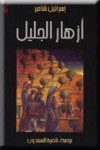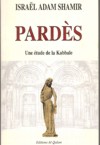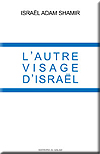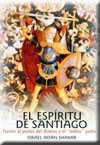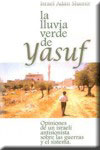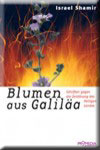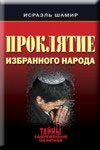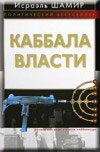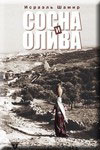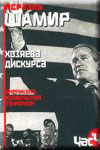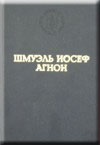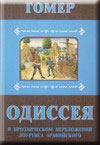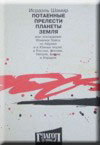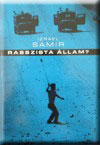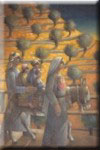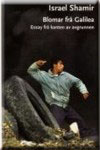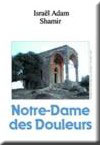62nd Anniversary of Parition
Henry Lowi
Sunday is the anniversary of UNGAR 181, the “Partition Resolution”. Partition remains the elephant in the room. No one wants to talk about it. The supporters of the so-called “2 state solution” don’t talk about Partition because they don’t question the justice of Partition or its inevitable consequences. They recognize the State of Israel’s “right to exist”. Like the supporters of UNGAR 181, they deny the right of the people of Palestine to exercise sovereignty over Palestine. What about the dissident supporters of the so-called “one-state solution”? They don’t turn their minds to how one gets from here to there. They somehow believe that a democratic one-state solution will fall from the sky, peacefully, without revolution. That is why these same well-meaning people attribute no role to the actual social and class forces living under Israeli rule and suffering from Israeli rule in besieged Gaza and the refugee camps. By not recognizing the need for revolution, the one-staters take no interest in the people who have an interest in revolution, those who can and will make a revolution, those for whom the daily struggle contains within it the unripe seeds of that revolution.
As a result of Partition, only the Zionist state was formed in former Mandate Palestine. For the Zionists, Partition presented a “sh’at kosher” – an opportunity, a pretext – to carry out what was always inherent and implicit in the Zionist program – the ethnic cleansing of Palestine. First, incrementally and reactively starting in December 1947, then deliberately, proactively and following a plan, 1/3 of the indigenous people of Palestine were driven out before the target date for the implementation of Partition. After the target date, the newly formed Jewish state, legitimized by Partition, acted aggressively to carry out its political program: settler colonialism, racist discrimination, and ethnic cleansing.
When British imperialism retreated from Palestine, it left behind not an independent secular republic, but a new colonial-settler regime. In that sense, the State of Israel, proclaimed on May 15, 1948, is the direct heir of the colonial British Mandate regime made possible by Allenby’s conquest of Ottoman Palestine. Unlike other former British colonies, Palestine never underwent de-colonization and democratization. Thanks to Partition, colonialism was reorganized in Palestine, and took a new form: the State of Israel.
At the time, some of the most prominent Jewish intellectuals opposed the establishment of a Jewish State in Palestine. These “soft Zionists” projected a Jewish or Hebrew homeland, in which Jewish people did not exercise sovereignty, certainly not state hegemony, over the Holy Land. The soft Zionists were swept aside by the hard Zionists of Mapai and Herut, who have been taking turns at the helm of the State of Israel and the Zionist movement ever since.
Partition was supported by the democratic imperialist United States and by the counter-revolutiona ry Stalinist Soviet Union, and both supported the Zionist Yishuv’s unilateral Proclamation of statehood, So did their respective satellites and allies. The majority of the members of the United Nations General Assembly fell into line. The people of Palestine were left alone to face the Zionist onslaught, poorly organized, poorly armed, poorly led, and lacking a democratic revolutionary political program.
The isolated forces within the Palestinian working class movement, Arabs and Hebrews, who opposed Partition and proposed working class unity, did not have a snowflake’s chance in hell. They, too, were swept aside by triumphant counter-revolution.
Partition could have been prevented only by a successful revolution.
This weekend, Israeli radicals are celebrating in Old Yafa the 80th birthday of veteran activist Reuven Kaminer. Reuven can look you in the eye and, keeping a straight face, assert that the 1947-48 war was, for the Zionist Yishuv, a “just war of national defence.” Israeli Communist Party leader Benjamin Gonen can describe with pride his role in the conquest of Haifa as part of the Hagana. Gush Shalom leader Uri Avnery will never say there was anything wrong – from the point of view of democracy or solidarity – with his participation in a Zionist militia in that war. We are not talking about personal accountability for personal choices and personal errors. We are talking about a political tradition that treats as axiomatic the perpetuation of the bitter fruits of Partition – the Israeli state on one hand, and denial of the right of return of the Palestine refugees on the other. All the soft Zionists work hard and make sacrifices for a better, more peaceful, more democratic State of Israel, but they will not admit that the Zionist regime is the number one obstacle to peace and coexistence. Re-considering Partition, formulating a political strategy for the de-colonization of Palestine -- that, for them, is beyond the Pale.
This past Friday, Gush Shalom published its weekly ad in Haaretz as follows:
|
|
|
Ad in Ha'aretz, Nov. 27, 2009 DO IT! |
From the point of view of democracy, release of Fateh-Tanzim leader Marwan Barghouti would be the “moral” act, as would be the release of PFLP leader Ahmad Sa’adat, as would be the release of all the political prisoners. But, when one places oneself politically and morally in the Zionist camp (albeit “soft Zionist”) one gets things confused. One is then compelled to treat the Palestinians as objects of “she’at kosher”, objects of an “opportunity” that one should be “wise” enough to exploit. Real solidarity with Marwan Barghouti and Ahmad Saadat and their followers and their Palestinian political rivals would require a completely different political morality, one that breaks free from the “morality” of Partition.
Where does this leave the heroes of the alternative “one state solution”? Without exception, all are working hard to support the “BDS campaign”. But what is the purpose of BDS as advertised by its most prominent supporters? I have heard 2 goals articulated for BDS. One is “to punish the Israelis”. The other is “to pressure Israel to recognize Palestinian rights”. Both goals presume the continued existence of the Zionist regime. One seeks to punish the Israelis, the other seeks to force the regime to self-reform. Neither sees any role for the people actually living, suffering, and struggling under the Zionist regime. No one offers any analysis of these social forces. No one discusses these human beings as agents of regime change and beneficiaries of regime change. No one believes that, from within the oppressed people, Hebrew Israelis and Arab Palestinians, will come the forces that will overthrow the Zionist regime and replace it with a democratic regime. I have never heard BDS promoted as part of a strategy of SUPPORTING the people of Palestine, of STRENGTHENING their struggle, of HELPING them gather the forces for a democratic revolution.
All the “friends of Palestine” have made their peace with Partition. They do not challenge it. They can live with it. They can agitate politically without reference to it. But the workers and farmers of Palestine, and the refugees in the camps, need a program to overcome Partition, to decolonize Palestine, to overthrow the Zionist regime, and to open up the prospects for peace, democracy and coexistence.
Partition could have been prevented only by revolution. Peace, democracy and coexistence can be achieved in the foreseeable future only by revolution. On November 29th, that is the message that needs to be discussed seriously and acted upon resolutely.
Regards,
Henry Lowi



